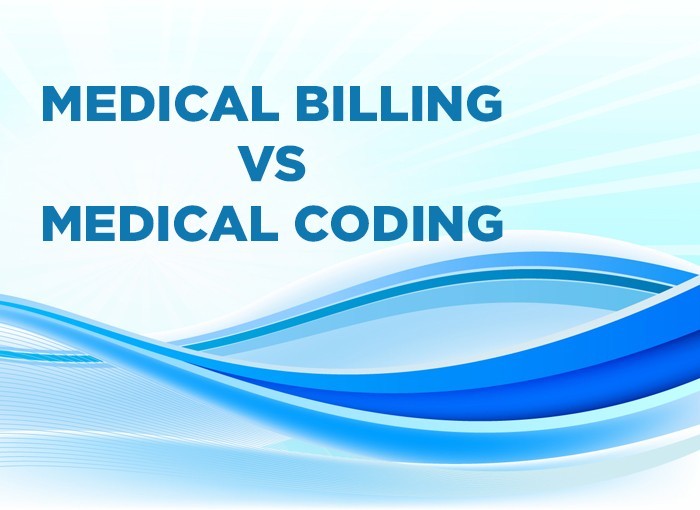What is the difference between medical billing and medical coding?
Medical billing and coding are considered the backbone of the healthcare industry’s revenue cycle. It ensures that doctors, physicians, hospitals, and other healthcare providers are reimbursed for the medical services they provide to patients. As the two terms deal with patient data, medical claim submission & reimbursement process, they demand utmost accuracy. However, medical billing and medical coding are two different processes. They are closely tied to each other. This article will highlight the differences between the two along with their importance in the healthcare industry.
Let’s take a look at their definitions first to understand the basic difference between these two medical terms.
What is Medical Billing?
Medical billing is the process involving a healthcare provider submitting patients’ medical claims to the health insurance company, following up on, and appealing claims in order to receive reimbursement for the services provided to the patients.
The process of medical billing starts as soon as a patient registers with a healthcare professional to receive treatment. From front-end billing to back-end billing, a complete itemized bill is created that includes all the information (healthcare provider’s name & location, patient information, services provided, etc.).
What is Medical Coding?
Medical coding allows the conversion of healthcare diagnosis, medical services, and procedures into universal alphanumeric codes known as medical codes. In simple words, it focuses specifically on the medical records of the patients. The services patients receive are simply converted into medical codes.
If the services provided are not accurately coded in the medical document, health insurance companies are likely to deny or reject the claims submitted.
Although the definitions given above explains the stark difference between medical billing and coding, let’s take a look at some other differences to understand the two medical terms better.
Difference between Medical Billing and Medical Coding
The medical billing staff predominantly works with patients and health insurance companies on claims submissions. The billing staff is likely to be involved more in patient-oriented tasks while medical coders work closely with healthcare professionals to accurately convert the services provided to the patients into medical codes.
The table further explains some more differences between the two:
| Medical Billing | Medical Coding |
| Involves patient data entry with the help of registered billing software | Involves categorization of the services provided to the patients using medical codes |
| Involves communication with patients, and health insurance providers | Involves communication with doctors, physicians, nurses, and other healthcare professionals |
| Involves submission of medical claims to health insurance companies on behalf of the patients | Applying medical codes (CPT, HCPCS, ICD, etc.) to patient records to precisely explain the services provided |
| Following-up with patients, and health insurance providers for smooth claims submission and reimbursement | Data entry through Electronic Health Record (EHR) and Electronic Medical Record (EMR) software |
| Managing bills, payments, and patient invoices | Examining operative reports used during surgery to apply procedure codes |
| Investigating denied, delayed, or rejected medical claims | Performing medical chart audits when a claim is denied |
| Ensuring healthcare professionals and patients receive reimbursements from health insurers | Staying updated with the latest revisions of coding standards and federal regulations |
| Verification of medical codes used by medical coders to check their accuracy | Examining the medical history of patients to make sure that coding accurately explains the services provided |
Benefits of Medical Billing & Medical Coding
The importance of medical billing & coding in the healthcare industry is clearly established. The two terms play a vital role in revenue generation for healthcare professionals. Also, the accuracy in these two departments allows the patients to pay smoothly for the services they receive. Some highlighted benefits of medical billing & coding are:
- Reduce billing errors
- Reduce and control operating costs
- Helps increase revenue generation
- Faster claims submission and processing resulting in healthier cash flow
- Improves patient satisfaction
- Allows healthcare professionals to focus on core competencies
- Effective communication with payers and health insurance companies
- Minimize claim denials by submitting clean claims
- Ability to generate patient specific reports
Healthcare providers can always choose to outsource medical billing and coding services to a reliable partner in order to improve their core efficiency.




